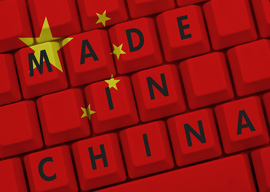
December 06, 2016

Source: Bigstock
Trump, however, was less polite and reassuring, giving Beijing the wet mitten across the face for its impertinence:
“Did China ask us if it was OK to devalue their currency (making it hard for our companies to compete), heavily tax our products going into their country (the U.S. doesn’t tax them) or to build a massive military complex in the middle of the South China Sea?”
Trump then answered his own question, “I don’t think so.”
According to The Washington Post, the phone call from Taiwan to Trump was no chance happening. It had been planned for weeks. And people in Trump’s inner circle are looking to closer ties to Taiwan and a tougher policy toward Beijing.
This suggests that Trump was aware there might be a sharp retort from Beijing, and that his tweets dismissing Chinese protests and doubling down on the Taiwan issue were both considered and deliberate.
Well, the fat is in the fire now.
Across Asia, every capital is waiting to see how Xi Jinping responds, for a matter of face would seem to be involved.
On the trade front, China is deeply vulnerable. U.S. tariffs on Chinese goods would cause a sudden massive loss of income to factories in China and a stampede out of the country to elsewhere in Asia by companies now producing in the Middle Kingdom.
On the other hand, without China using its economic leverage over North Korea, it is unlikely any sanctions the U.S. and its allies can impose will persuade Kim Jong Un to halt his nuclear weapons program.
China can choke North Korea to death. But China can also step back and let Pyongyang become a nuclear weapons state, though that could mean Seoul and Tokyo following suit, which would be intolerable to Beijing.
Before we go down this road, President-elect Trump and his foreign policy team ought to think through just where it leads—and where it might end.